Hanoi to address public investment disbursement bottlenecks in 2025
At the 20th meeting of the Executive Committee of Hanoi Party Committee on December 4, Vice Chairman of Hanoi People's Committee Ha Minh Hai reported that the total state budget revenue for Hanoi in 2024 is estimated to exceed $20.5 million, achieving 120.5 per cent of the target and a 19.6 per cent increase compared to 2023. Local government expenditure is estimated to exceed $5.25 million, reaching 91.1 per cent of the adjusted target.
Nguyen Xuan Luu, director of Hanoi Department of Finance, stated, "In 2024, Hanoi has managed the budget with great flexibility, responding promptly to various situations, meeting political task requirements, and increasing investment resources. All 30 districts, towns, and cities have exceeded their revenue targets, achieving 100 per cent collection in taxes and fees. For Hanoi, the current 20 per cent increase in budget revenue, equivalent to about $3.33 million, is extremely significant."
Regarding budget expenditure, Luu further explained that Hanoi continues to maintain a positive expenditure ratio with current expenditures under 50 per cent, and investment expenditure is expected to account for around 52 per cent. "The city has deployed an 8 per cent fund for wage reform, so once the Hanoi People's Council approves the resolution in the final meeting of this year, the city will be able to allocate the budget to agencies, units, and localities," he added.
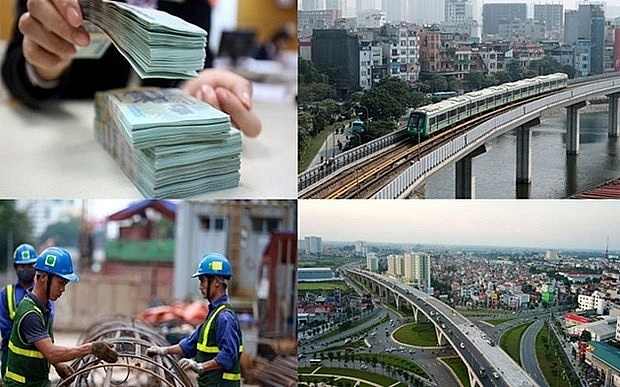 |
During the meeting, Hai provided updates on the adjustments to Hanoi's midterm public investment plan for 2021-2025 and forecasted state budget revenue for 2025 to exceed $21.04 million, a 2.7 per cent increase from 2024. This includes an estimated domestic revenue of $19.7 million and local expenditures of $6.92 million, reflecting a $109,000 increase in current expenditures to support wage reforms from surplus funds, marking a 13.4 per cent rise from the 2024 estimate.
“The 2025 public investment plan will adhere to the 2019 Public Investment Law, government directives, and Ministry of Planning and Investment guidance. Capital will be allocated early in 2025 for projects meeting funding conditions and in line with actual progress,” said Hai. “The 2025 capital allocation is $3.63 million, with $2.07 million for the city's public investment plan, including $1.52 million for district projects. $40,500 will be allocated to districts from land lease payments.”
Assessing the disbursement results for 2024, Hanoi's deputy chairman pointed out that despite the city's efforts, the disbursement rate remains low, with forecasts indicating it will not meet the 95 per cent target.
"The representatives have identified four key bottlenecks in public investment disbursement, with the largest being land clearance. The biggest challenge in land clearance is determining land origin. According to the city’s chairman, further discussion is needed to establish mechanisms for resolving land origin issues," said Hai.
In addition to land clearance challenges, Hai highlighted another critical bottleneck; investment preparation procedures. Alongside institutional solutions, project developers must be proactive when they prepare their projects.
Le Anh Quan, director of Hanoi Department of Planning and Investment, stated that Hanoi has set 25 economic and social development targets for 2025. "The department has proposed three scenarios and five growth plans, of which the selected plan projects a 6.5 per cent growth in regional GDP for the city in 2025. The action programme proposed by the People's Committee aims for a regional GDP growth rate of over 7 per cent. Per capita regional GDP is expected to reach over $7,166 per person per year."
Looking towards the 2025 economic and social development goals, delegates emphasised that a key factor for success is addressing bottlenecks in public investment disbursement.
Clarifying specific reasons that have hindered the city’s public investment disbursement, Duong Hoai Nam, secretary of Long Bien district's Party Committee and chairman of the district'd People’s Council, pointed out challenges to land clearance and the large-scale investment plan this year. The city has delegated the implementation of several park and garden renovation projects to districts, which has resulted in complaints from residents about compensation issues in land clearance.
"When we implement land clearance projects, we always receive complaints from residents about the compensation rates. This is truly a major bottleneck that the city needs to address to help localities accelerate public investment disbursement," said Nam.
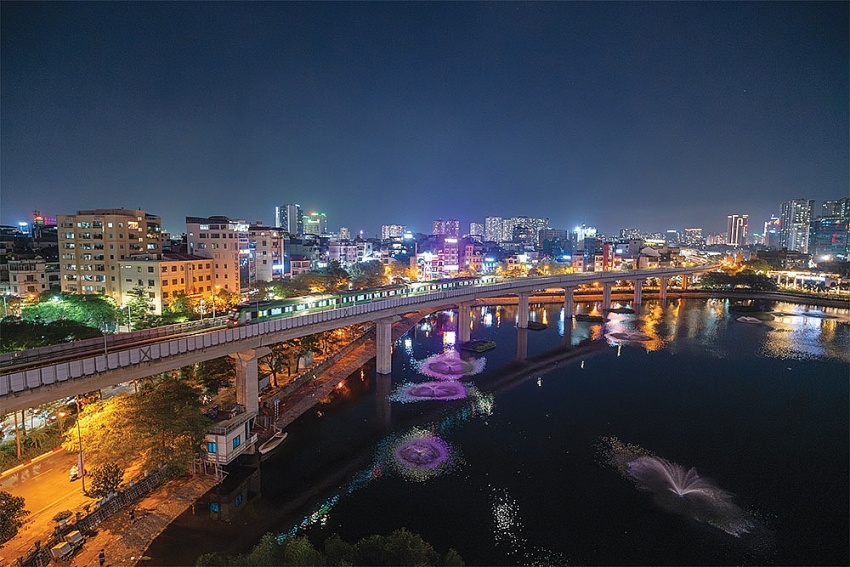 |
Nguyen Quang Hieu, Secretary of Nam Tu Liem Party Committee, also stated that the city's public investment disbursement has not met the targets this year due to issues with land clearance policies. The compensation rates for 2024 are still problematic and have not yet garnered the consensus of the people.
"Along with the determination of the entire political system and relevant units, delegating authority to local agencies for implementing public investment projects is also an essential factor to accelerate the public investment plan.”
Nguyen Van Nam, Secretary of Hai Ba Trung Party Committee, expressed concern about the city's regional GDP growth in 2024 being lower than the national average. He stressed the need to identify the underlying causes rather than attributing it solely to the impact of the COVID-19 pandemic. "Currently, the management and use of land in the city are still problematic, with many projects 'on hold'. Many projects have been fenced off for years but no solutions have been provided to recover or force implementation," he said.
While agreeing that land clearance issues have impacted public investment disbursement, Nam also pointed out other reasons, including slow investment procedures and project quality issues that necessitate frequent adjustments.
"Currently, there is money waiting for projects not just at a district level but across the city due to delays in preparing investment procedures and the lack of thorough decentralisation of investment responsibilities to localities," emphasised Nam.
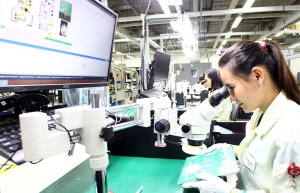 | Accelerated public investment the backbone to new growth Vietnam is being advised by economists to have a bigger focus on boosting the expansion of fiscal policy to fuel domestic production and business activities. |
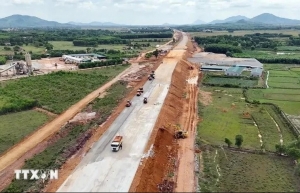 | PM urges speeding up disbursement of public investment Prime Minister Pham Minh Chinh on October 8 signed an official dispatch, urging relevant authorities to accelerate the disbursement of public investment in the remaining months of this year. |
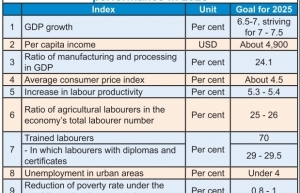 | Slow disbursement hinders ambitions Vietnam’s socioeconomic development path for 2025 has been finalised, but it may fall short of its growth targets if the current slow pace of public investment disbursement continues and enterprises continue to face significant challenges. |
What the stars mean:
★ Poor ★ ★ Promising ★★★ Good ★★★★ Very good ★★★★★ Exceptional
Related Contents
Latest News
More News
- MAE names big 10 policy wins in 2025 (February 06, 2026 | 08:00)
- US firms deepen energy engagement with Vietnam (February 05, 2026 | 17:23)
- Vietnam records solid FDI performance in January (February 05, 2026 | 17:11)
- Site clearance work launched for Dung Quat refinery upgrade (February 04, 2026 | 18:06)
- Masan High-Tech Materials reports profit: a view from Nui Phao mine (February 04, 2026 | 16:13)
- Hermes joins Long Thanh cargo terminal development (February 04, 2026 | 15:59)
- SCG enhances production and distribution in Vietnam (February 04, 2026 | 08:00)
- UNIVACCO strengthens Asia expansion with Vietnam facility (February 03, 2026 | 08:00)
- Cai Mep Ha Port project wins approval with $1.95bn investment (February 02, 2026 | 16:17)
- Repositioning Vietnam in Asia’s manufacturing race (February 02, 2026 | 16:00)

 Tag:
Tag:




















 Mobile Version
Mobile Version